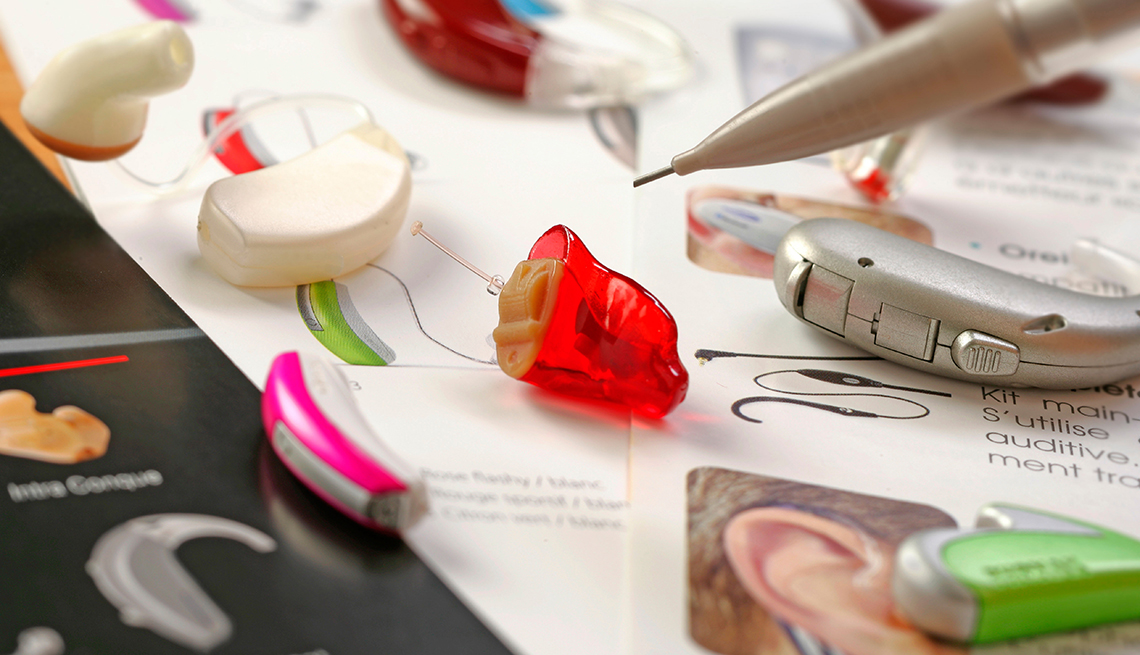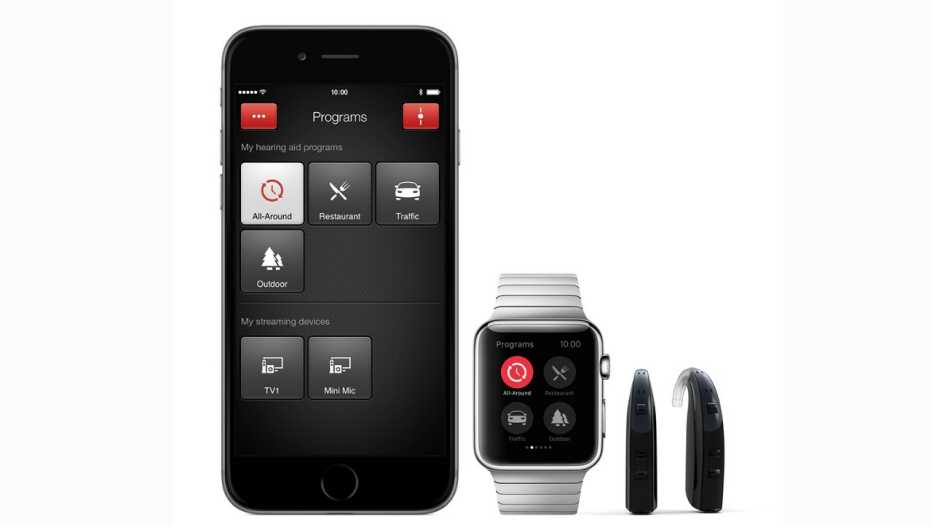AARP Hearing Center
A new study finds that hearing aids, whether from an audiologist or bought over the counter, can help older adults with hearing loss — although those who receive professional help with fit and instruction may have a better outcome.
The six-week Indiana University study, published in the March issue of American Journal of Audiology, compared outcomes among three groups of patients: one that got a hearing aid that included the services of an audiologist; one that followed an over-the-counter process, choosing a preprogrammd device — in actuality, the same high-end digital pair as the first group — but without a fitting; and a control group that got a professional fitting for a placebo hearing aid that had no amplification.
The subjects were 154 adults, ages 55 to 79, with mild to moderate hearing loss. The researchers compared benefits, including user satisfaction and usage of hearing aids after six weeks.
The researchers found that hearing aids helped both the audiologist group and the OTC group — an important finding that provides “firm evidence that hearing aids do, in fact, provide significant benefit to older adults,” lead author Larry Humes, a professor in the Department of Speech and Hearing Sciences at Indiana University Bloomington, said in a news release.
However, the OTC group was less satisfied with the hearing aids and less likely to purchase them after the trial. About 55 percent of the OTC participants said they were likely to purchase their hearing aids after the trial vs. 81 percent for the audiologist group.
Interestingly, satisfaction significantly increased for patients in the OTC group who opted to continue with an audiologist for a four-week follow-up period after the main trial. More of them also opted to purchase their hearing aids after this added time after initially saying they would not.
Making OTC hearing aids more accessible is a goal of a bill recently introduced by Sens. Elizabeth Warren (D-Mass.) and Chuck Grassley (R-Iowa) authorizing the sale of OTC hearing aids for mild to moderate loss. In an article in JAMA, they wrote: “Increasing access to innovative, low-cost hearing technologies must be part of the policy response to the untreated hearing loss now experienced by millions of Americans.”
The Hearing Loss Association of America (HLAA) also supports the Warren-Grassley bill and issued a call to action to its members to support it. Many members of HLAA have severe to profound hearing loss and would not be candidates for an OTC aid, but as the HLAA statement put it, improving service at the basic end encourages innovative technologies for all types of hearing loss. In addition, the introduction of lower-cost hearing aids and competitive pricing may help bring the cost of all hearing aids down.
Audiologists who are concerned that OTC hearing aids will put them out of business should take comfort in the study’s findings about the benefits of best practices in audiology. If audiologists get behind OTC hearing aids, it could mean hundreds of thousands more patients needing their services.
This would be good for people with hearing loss, and good for audiologists. And if hearing-aid manufactures get into the low-cost hearing business, it will be good for them as well. The study by Humes and colleagues shows that nobody really has anything to lose by encouraging innovation and competition in hearing aids.



































































